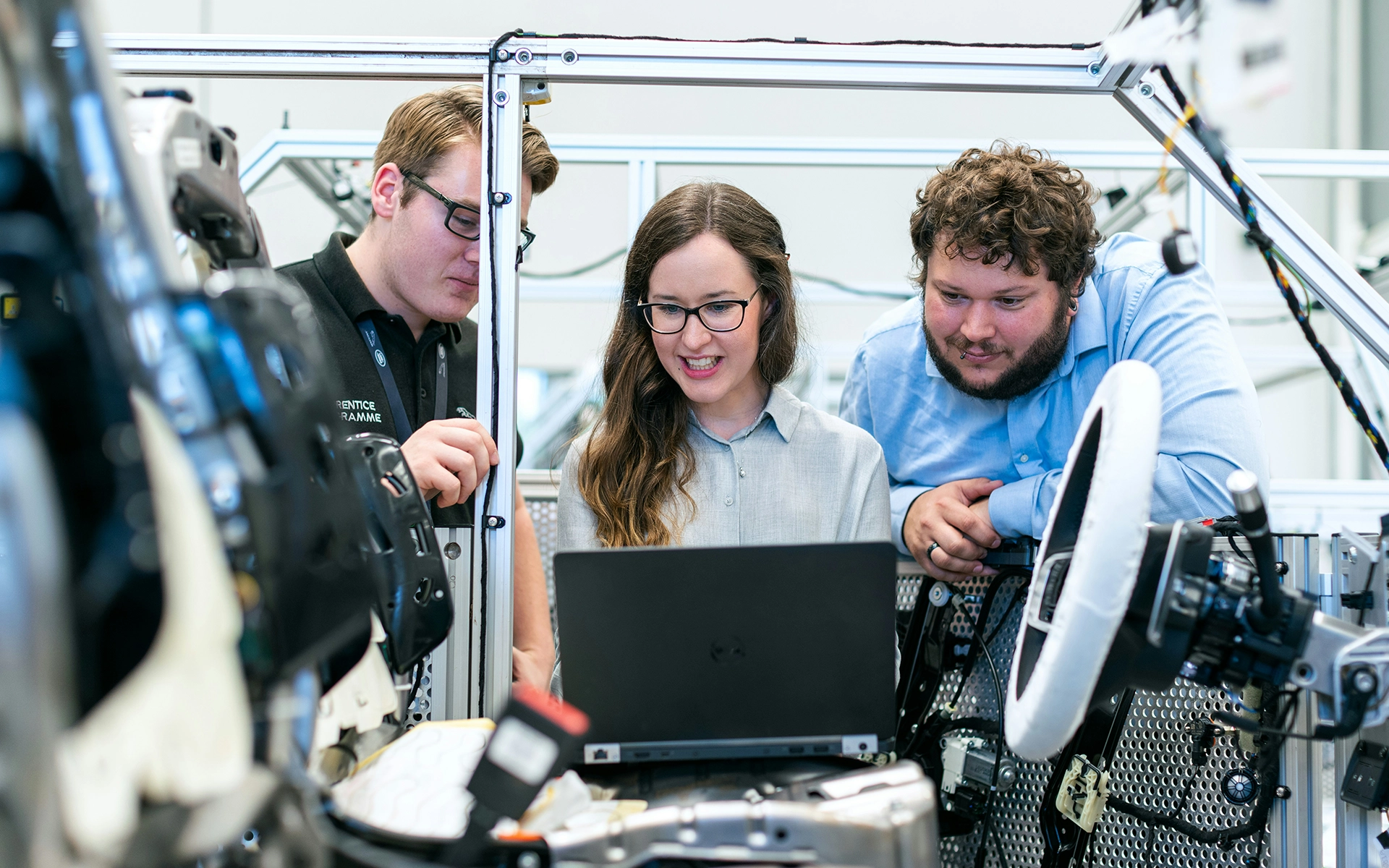Education For Sustainable Development – Changing Paradigms
University World News


This article is part of a series on Education for Sustainable Development published by University World News in partnership with ABET. University World News is solely responsible for the editorial content.

This article is part of a series on Education for Sustainable Development published by University World News in partnership with ABET. University World News is solely responsible for the editorial content.
Education For Sustainable Development – Changing Paradigms
Nic Mitchell
September 16, 2023
GLOBAL
Universities and other educational institutions will need to adopt experimental and applied learning approaches to ‘education for sustainable development’ (ESD) to prepare learners to address the grand socio-ecological challenges of the 21st century, according to the International Association of Universities.
This cannot be done by continuing the teaching paradigms and traditions of the 20th century. Hence the need to transform education by taking a whole-institution approach to teaching and learning, research and community engagement, says the body created under the auspices of UNESCO to serve the global higher education community with expertise and trends analysis and peer-to-peer learning and support.
As the world starts to focus on the United Nations SDG Summit 2023 taking place in New York next week, and COP28 UAE in December – and at the halfway point to the global date for achieving the Sustainable Development Goals (SDGs) and reducing global emissions by 43% – University World News is kicking off a series of special reports that will explore the transformative challenges of re-orienting higher education towards education for sustainable development.
In this article in the first of the new series of special reports, we talk to some of the key figures in the International Association of Universities (IAU) – which has nearly 600 members including institutions and organisations and associations, in more than 120 countries – and learn what they think needs to change.
The IAU was a key partner of the UNESCO Global Action Programme on Education for Sustainable Development, which ended in 2019, and is now helping to steer the follow-up programme ‘ESD for 2030’, which was launched at the online UNESCO World Conference on Education for Sustainable Development in 2021.
UNESCO is organising the third ESD-Net 2030 interactive webinar on ESD pedagogy on Thursday 21 September 2023, from 11.00 to 13.00 CET, with four workshops covering a range of topics, from media and information literacy and implementing effective and quality climate change education to designing community-based actions for sustainable consumption and production, and taking actions for a carbon neutral school.
More Than Climate Change Education
Dr Hilligje van’t Land, IAU secretary general, told University World News: “The IAU supports its members and the global higher education community in their efforts to adopt sustainable development as a whole of institution approach, and to specifically engage with the United Nations SDGs – both in their strategies and activities.
“Education for sustainable development is an integral component for this transformative process aiming at educating the current and next generation of citizens, experts and leaders, and enabling them to develop a more just and sustainable society today and beyond 2030.”
Van’t Land said that while the world will continue to need students with a strong disciplinary basis, “their capacity and opportunities to address real-life challenges will invariably involve interdisciplinary approaches”.
She added: “Transforming educational systems requires recognition that ESD extends far beyond climate change education, necessitating a focus on social issues that are sometimes overlooked. Education for sustainable development must embrace and tackle complexity, as opposed to simplicity, to unfold its transformative potential.”
Van’t Land took part in an ESD-Net 2030 Europe-North America regional meeting in June, co-organised by UNESCO, the United Nations Economic Commission for Europe and the European Commission to strengthen partnerships, collaboration and mutual learning and consider the role of higher education in ESD.
Among those at the meeting was Professor Charles Hopkins, UNESCO chair in reorienting education towards sustainability at York University in Canada. He argued that providing learners of all ages with the knowledge, skills and attitudes to pursue sustainable development is a highly complex process.
“It requires deep changes in educational systems and people often resist change. But despite the difficulties, if we’re going to transform education, education for sustainable development is the appropriate vehicle,” he told University World News.
“Education for sustainable development is an integral component for this transformative process aiming at educating the current and next generation of citizens, experts and leaders, and enabling them to develop a more just and sustainable society today and beyond 2030.”
Enable Meaningful Changes
Also involved in the ESD-Net 2030 Europe-North America regional meeting was Robert J Didham, associate professor and UNESCO chair on education for sustainable lifestyles at Inland Norway University of Applied Sciences.
He told University World News that addressing the grand socio-ecological challenges of the century “demands a disruption of the predominant paradigm of education” to enable meaningful changes in how people perceive the world and act.
“Each level of education presents different opportunities, issues and roles for learners, educators and institutions, and higher education plays a crucial role in ESD.”
He said: “Education for sustainable development provides a holistic framework for enhancing both the quality and relevance of education, with ESD drawing on various educational theories and pedagogical approaches to develop learners’ capacities to make conscious, pro-sustainability choices in their daily lives.
“It does this by especially promoting lifelong learning skills, students’ critical reflexivity, cooperative learning relationships, and holistic interpretations of knowledge.
“It is oriented towards preparing learners to address the grand socio-ecological challenges of the 21st century. And we cannot achieve this with the teaching paradigms and traditions of the 20th century, thus our need to transform education.”
5Ps For SDGs
The 5Ps – people, planet, prosperity, peace and partnership – are used to demonstrate the priority dimensions of the sustainable development agenda and the SDGs. Didham said that ESD provides a framework for advancing these 5Ps through education.
The 5Ps are:
For the Planet: developing holistic, integrated interpretations of knowledge and whole-systems thinking.
For People: developing students’ critical awareness and reflexivity to create personal and collective knowledge.
For Prosperity, by developing learning that is oriented towards problem solving, practical experience, and the search for new knowledge and innovations.
For Peace, by developing socially aware, ethical and responsible citizens who appreciate interdependent relationships between themselves, society and ecosystems.
For Partnership, by developing cooperative learning relationships through deliberation, democratic dialogue, group meaning, values-based learning and social learning.
Asked what important pedagogical approaches ESD brings to the table, Didham said: “We can start with the focus on active and student-centred learning, which in turn challenges the teacher to play the role of a facilitator to guide student-led inquiry and discovery. This means moving away from education being about the delivery of finite and fixed knowledge.”
“We can start with the focus on active and student-centred learning, which in turn challenges the teacher to play the role of a facilitator to guide student-led inquiry and discovery.”
Search For New Knowledge
He continued: “ESD offers a pluralistic approach to education and recognises that in regard to sustainable development, we do not yet have all the knowledge that we need to achieve it. So, learning must be oriented towards the search for new knowledge and solutions.
“ESD is also structured towards supporting progressive competence development over time. It lifts up transformative themes, including whole-systems thinking, moving from individual to interconnected and from competition to cooperation in learning approaches, while also promoting critical analysis, reflection and awareness.”
Didham told University World News: “The pedagogical approaches of ESD support experiential and applied learning so that learned knowledge, skills and values can be used in practical ways and adapted for use to new contexts and situations.”
Asked about what these approaches would mean for learning outcomes, he said: “We often lose sight of one very important overarching competence. This is in regard to the type of ‘learning framework’ or ‘learning paradigm’ that education promotes and effectively develops as part of our lifelong learning capacity.
“Here, we must understand that at its most transformational, ESD disrupts our epistemological traditions by challenging a traditional view of education and knowledge that has sought to make meaning of the world through dividing things into atomised and disconnected parts.
“This has been part of our scientific traditions and has been important in society’s knowledge advancement since its beginnings in the 17th century.
“This tradition helps to reinforce the divisions between mind and body, us and them, human and nature, as well as ignoring the connections of systems across environmental, economic, social and cultural dimensions.”
Didham said ESD aims to “facilitate learners with a holistic, integrated and interdisciplinary framework for learning” in which they can develop their own knowledge and bring context and meaning to their own learning, and that “allows for exploration, elaboration, depth learning and the application of learning to real-world contexts”.
Isabel Toman, programme officer for sustainable development at the IAU, told University World News: “It is the pedagogical approaches of ESD in supporting experiential and applied learning – and the competences students can acquire through it – that is attracting so much interest worldwide, as higher education prepares future generations to overcome the sustainability challenges that lie ahead.”
“This tradition helps to reinforce the divisions between mind and body, us and them, human and nature, as well as ignoring the connections of systems across environmental, economic, social and cultural dimensions.”
Nic Mitchell is a UK-based freelance journalist and PR consultant specialising in European and international higher education. He blogs at www.delacourcommunications.com.